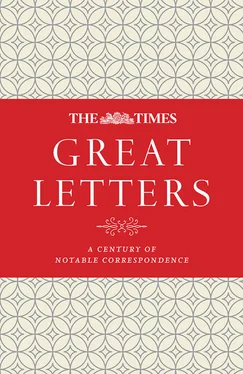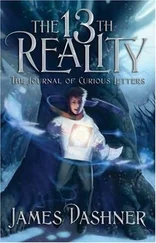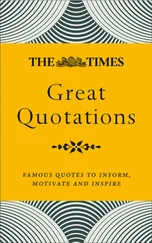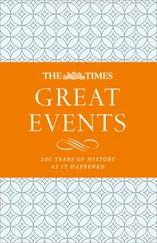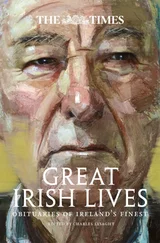There are masters of the craft to be rediscovered here, among them AP Herbert and Peter Fleming. Graham Greene, John Le Carré and Agatha Christie demonstrate why they made their living from their pens, even if a taxi driver puts TS Eliot square about the limits of Bertrand Russell’s intellect. And Arthur Koestler makes the case for a tax on pleasure (with married love to be zero-rated).
If a Hungarian-born intellectual can be moved to write amusingly in his sixth or seventh language to a newspaper, it must be doing something right. At its best, that is to draw its readers into a long, ongoing conversation about the direction of the nation, what shape it is in and which qualities it should exude.
What is important is that dialogue is open to anyone who reads the paper, not just those who are influenced by its readers’ views, or who seek to influence them. Not everyone understands the rules at once, as the first letter hereafter shows (“How to Have a Letter Published”).
But it is hard to think of another group of readers who, wanting to protest a decision by local councillors about an exhibition, would spontaneously adopt the personae of literary characters relevant to their cause (“The Curious Case of Sherlock Holmes”, which can be found at the start of the book). That ability to make your point whilst retaining your sense of humour is perhaps uniquely — and the best of — British. If newspapers can have a soul, it can be found here, on the Letters Page.
Where it might be helpful, I have added brief contexts to some of the letters which follow. Similarly, the capacities in which correspondents write and their addresses have also been included as seems necessary. Notwithstanding the passage of time, the style and usage of language in the letters, and the views expressed in them, remain those of the original.
JAMES OWEN
starting times
How to Have a Letter Published
26 January 1970
Sir, You’re joking. You must be. “Who will be writing to The Times tonight?” is printed on the face of an envelope containing a letter to me from The Times. The letter “assures you that your remarks were read with interest”. But not sufficient interest to warrant publication. I wonder why when one considers the amount of drivel that is to be found in the Letters to the Editor.
Three times in my life I have written a letter to the Editor. Three times he has found my letter interesting, but not sufficiently so to warrant publication.
The first was on the subject of east Germany, on which I have had a book published. Probably I was not considered an expert on east Germany.
The second was a protest, and an invitation to others to do so, against the victimization of Lieutenant-Colonel Emil Zátopek, the Czechoslovak Olympic athlete. Presumably I was not considered an expert, although, in Prague itself, at the height of his career and for seven years, I advised Zátopek on his training. And wrote two books on sport in Czechoslovakia under the communists.
The third, recently, was a reply to Sir Peter Mursell, a member of the Royal Commission on Local Government, on the implications of the Maud Report. Again, I assume, I was not regarded as an authority on the subject, although the Guardian has given a pen picture of my work against Maud spread over four columns and I have been invited to debate Maud with Lord Redcliffe-Maud at University College, Oxford, of which he is Master.
What does one have to do in order to be recognized by the Editor of The Times? Bring about a counter-revolution in communist east Germany? Run faster than Zátopek? Become chairman of a new Royal Commission on Local Government in England?
Yours faithfully,
J. ARMOUR-MILNE
Replied on 28 January 1970
Sir, The answer to Mr. J. Armour-Milne’s question is simple.
Last year I had two letters published in The Times and I’ve been dining out on them ever since. They involved me in an exchange of letters of ever-increasing lunacy with other correspondents. I can bear witness that the prime qualification you need to get letters published in The Times is eccentricity.
Yours faithfully,
SYLVIA MARGOLIS
* * * * * * *
The Curious Case of Sherlock Holmes
28 October 1950
Sir, It is doubtful whether Mr. Sherlock Holmes will have seen the paragraph in The Times to-day recording the singular decision of the councillors of St. Marylebone to oppose the proposal for an exhibition of material of my old friend and mentor for the benefit of visitors to the Festival of Britain. Engrossed as he is in bee-keeping in Sussex, he is unlikely to rally to his own defence, and you will perhaps allow me, as a humble chronicler of some of his cases and as a former resident in the borough, to express indignation at this decision.
There is much housing in the Metropolis but there is but one Mr. Sherlock Holmes, and I venture to assert that visitors from across the Atlantic (who cannot as yet forgotten my old friend’s remarkable work in clearing up the dark mystery of the Valley of Fear and the grotesque affair of the Study in Scarlet) would find such an exhibition of interest. Why the councillors of St. Marylebone, in their anxiety to display their work on the clearing of slums, should deny honour to my old friend I find it hard to understand. Perhaps this is time’s revenge for the exposure by Mr. Sherlock Holmes of the evil machinations of the Norwood Builder. Whatever the reason, I trust that second and better thoughts may prevail, and in the meantime subscribe myself,
Your humble but indignant servant,
JOHN H. WATSON, M.D. late of the Indian Army.
2 November 1950
Sir, To-day I visited Mr. Sherlock Holmes and conveyed to him the welcome news that St. Marylebone will hold an exhibition in his honour during the Festival of Britain. I could see he was deeply moved by this tribute, as also by the correspondence in which your readers have so warmly supported my plea. Several of those letters raise the subject of commemorative material to be placed on exhibition. Alas, but little remains, for a mysterious and disastrous fire at my old friend’s Sussex home some years ago (the details of which are not yet ready to be given to the world) destroyed the greater part of the relics of his cases. St. Marylebone, I fear, will have to manage without his help.
May I trespass a little further on your indulgence to reply to two of your correspondents? Mycroft Holmes is, of course, technically correct in stating I was not in the Indian Army, though I did in fact so describe myself on the battered tin dispatch box which until recently lay in the vaults of Cox’s Bank in Pall Mall. But it was the custom in 1878, when I was wounded at Maiwand, for those in whatever regiment in India they served, to describe themselves as “of the Indian Army,” a point of which Mycroft in his omniscience will be well aware. As for Mrs. Whitney, I am surprised that, in spite of her close friendship, she is apparently unaware that my dear first wife used “James” as a name for him who remains,
Yours faithfully,
JOHN H. WATSON, M.D.
Replied on 2 November 1950
Sir, Long years of retirement have failed to break the professional habit of careful examination of the Personal columns of The Times newspaper and a necessarily hastier perusal of its other contents. Thus I have learned with no little surprise of the proposal to stage an exhibition perpetuating the performances of my old acquaintance, Mr. Sherlock Holmes. Surely in this correspondence to-day’s letter from Mrs. Hudson, his worthy landlady, places the abilities of Mr. Holmes in their right perspective. A place of amusement, such as Madame Tussaud’s, is surely the proper setting for a record of Holmes’s amateur achievements. It would be ungenerous of me to deny that on occasion the gifted guesswork of Mr. Holmes has jumped a stage in the final solution of a crime. It may not be inappropriate to remind your readers, however, of the fable of the tortoise and the hare, and the true student of criminology will continue to regard as the only true source the so-called “Black Museum” of that institution on the Victoria Embankment which for so many years I had the honour to serve.
Читать дальше
